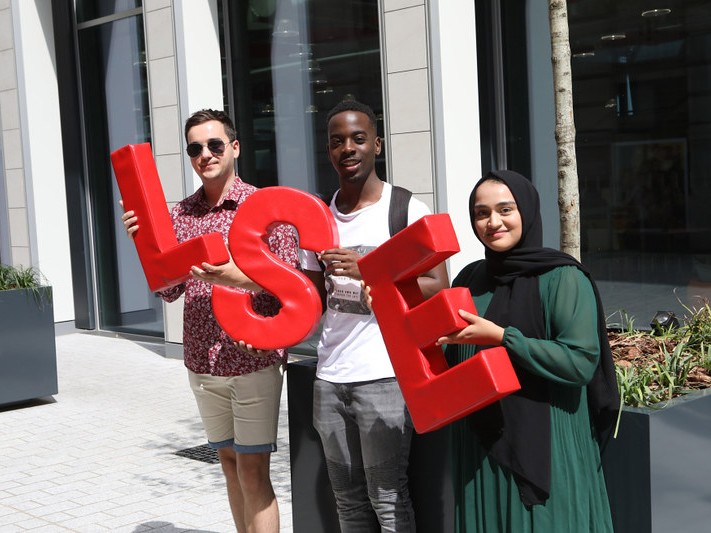
LSE has been ranked fifth in the English Social Mobility Index published today (19 October). Rising from eighth place last year, LSE is now one of the highest Russell Group universities on the list.
Published annually by the Higher Education Policy Institute (HEPI), the index measures the social mobility of graduates and compares the performance of English universities and higher education providers.
Over the last five years, LSE has narrowed the gap in access for students from the most and least socioeconomically deprived neighbourhoods in England by 62 per cent from 2016 to 2021.
Some of the initiatives offered by LSE’s Widening Participation team include pre-entry activities for school and college students, such as LSE Thrive, a 10-month access programme for year 12 students of Black heritage backgrounds living in or close to London, launched earlier this year.
For UK undergraduate students, LSE also uses contextual admissions to assess the achievement and potential of applicants, whilst recognising the challenges they may have faced in their educational or individual circumstances.
As of 2022, all LSE undergraduate programmes are participating in our contextual offers scheme. This means applicants meeting certain eligibility criteria may receive an offer that is lower than the standard offer for the programme they have applied for, taking into consideration the context in which they have achieved their academic qualifications and their personal circumstances.
Professor Emma McCoy, Vice President and Pro-Vice Chancellor (Education) at LSE, commented: “I am delighted that LSE has risen to fifth place nationally in the index. Our position reflects the hard work of so many people across our School community supporting students from under-represented groups into higher education and supporting students at LSE to thrive during their studies and beyond. As a specialist social science institution and a leading global university, we want to ensure that the widest range of perspectives and experiences are present in our classrooms.”
Jess Bond, Head of Widening Participation, added: “At LSE, we aim to ensure that students from under-represented groups are supported at every stage of their educational journey. We run pre-entry activities with school and college pupils such as our GCSE Maths tutoring scheme and our Pathways to the Professions programmes; use a holistic contextual admissions approach; and offer our students a comprehensive package of financial support, including bursaries and our Uggla Family Scholars Programme.
“Throughout their time at LSE, our students can access a wide range of opportunities to support them in their studies and beyond, and our position in this ranking is testament to our School-wide commitment to tackling educational inequalities”.
To find out more about LSE’s widening participation work, please visit: https://www.lse.ac.uk/study-at-lse/Undergraduate/widening-participation